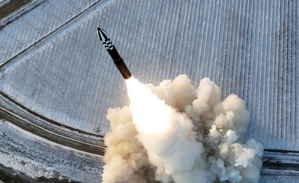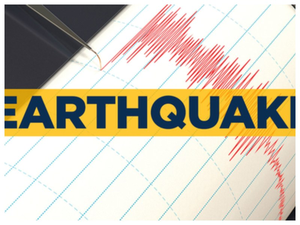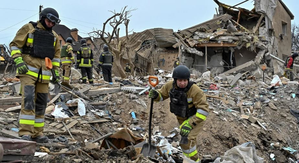In this week’s climate news:
– Canada unveils emission caps for the oil and gas sector
– COP28 protesters in Dubai demand “meat on the agenda, not menus”
– COP28 president revises statement regarding the science behind fossil fuel phase-out
Since the 1800s, human activities, primarily the burning of fossil fuels like coal, oil, and gas, have been the main drivers of climate change, leading to increased instances of wildfires and severe weather events. The UN’s Intergovernmental Panel on Climate Change has repeatedly warned about the urgent need to combat global warming. Research shows that warming conditions contribute to droughts, exacerbate wildfires, and lead to earlier forest fires. Check back every Saturday for more climate and environmental updates or subscribe to our Climate Connected newsletter for regular updates.
Quick Climate Change Facts:
– The Earth is currently 1.2°C warmer than in the 1800s.
– Globally, 2022 was the fifth-hottest year on record, with 2016 being the hottest.
– Human activities have increased CO2 concentrations by nearly 49% since 1850.
– We are not on track to meet the Paris Agreement target of limiting global warming to 1.5°C.
– If current CO2 emissions continue, temperatures could rise by up to 4.4°C by the end of the century.
– In April 2022, greenhouse gas concentrations reached record highs.
– To meet climate goals, emissions must decrease by 7.6% annually from 2020 to 2030 for a 1.5°C limit and by 2.7% per year for a 2°C limit.
– 97% of climate scientists agree that human activities are causing global warming (Source: United Nations IPCC, World Meteorological Organization, UNEP, NASA, climatedata.ca).
Latest News:
Oil and Gas Emissions to Be Reduced by Over One-Third by 2030, with Offset Credits Allowed
The oil and gas industry must cut emissions by more than a third within seven years or purchase offset credits under new federal policy. By 2030, conventional oil, oilsands, and natural gas companies will collectively need to reduce emissions by 35 to 38 percent compared to 2019 levels. Environment Minister Steven Guilbeault stated that this figure was developed after extensive consultations with industry and stakeholders to ensure its achievability and resilience against potential constitutional challenges.
Canada Commits to Reducing Methane Emissions: Oil and Gas Production Sites Targeted
At COP28, the Canadian government introduced new regulations designed to curb methane emissions at oil and gas production sites, aiming to reduce emissions by at least 75 percent compared to 2012 levels by 2030. These regulations will require companies to cease flaring (burning waste methane) and venting (intentional release of methane) from their sites, with some safety exemptions.
Debate Heats Up at COP28: Should Fossil Fuels Be Phased Out or Reduced?
Climate negotiators at COP28 zeroed in on a critical issue: dealing with the main cause of global warming—fossil fuels. While discussions on the Global Stocktake produced various possibilities for phasing out fossil fuels, the need for consensus on this matter remains crucial.
COP28 Climate Talks Enter Final Week with Negotiations in Full Swing
Negotiators at COP28 climate talks intensified their efforts as the summit entered its second and final week. Key discussions focused on reducing fossil fuel use and addressing other critical climate issues.
COP28 President Clarifies Statements on Fossil Fuel Phase-Out
Sultan Ahmed Al Jaber, the head of the COP28 climate summit, walked back previous comments that appeared to downplay the scientific consensus on the necessity of phasing out fossil fuels to curb global warming. He emphasized his respect for science and the urgency of addressing climate change.
Climate Activists Call for a Treaty to Reduce Meat Consumption
Climate activists rallied at COP28 to advocate for a global plant-based treaty, highlighting the need to reduce meat consumption as part of climate mitigation efforts.
Adaptation to Climate Change Takes Center Stage at COP28
While the primary focus at COP28 has been on climate change mitigation, discussions about adaptation to the impacts of climate change have gained prominence, with vulnerable nations pushing for increased funding to address extreme weather events.
UBC Scientists Embark on Atlantic Row for Ocean Conservation
A team of marine scientists affiliated with the University of British Columbia plans to row 5,000 kilometers across the Atlantic Ocean to raise funds for ocean conservation.
New B.C. Regulations Facilitate Installation of EV Charging Stations in Strata Developments
The British Columbia government has introduced rules making it easier for homeowners in strata developments to request electric vehicle (EV) charging stations. The regulations outline the process and timeline for strata corporations to respond to such requests.
Increase in Wild Fish Deaths at B.C. Salmon Farms in 2022
Federal Fisheries and Oceans Canada data reveals a significant rise in wild fish deaths at B.C. salmon farms in 2022, primarily herring. The spraying process used to remove sea lice from farmed salmon may be contributing to these deaths.
These headlines offer a glimpse into the latest climate developments, emphasizing the critical need to address climate change and its far-reaching impacts. Stay tuned for more updates on climate and environmental news.

























































